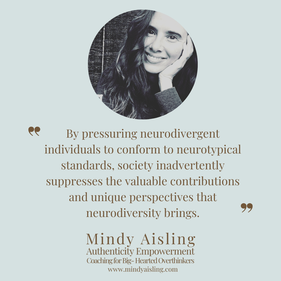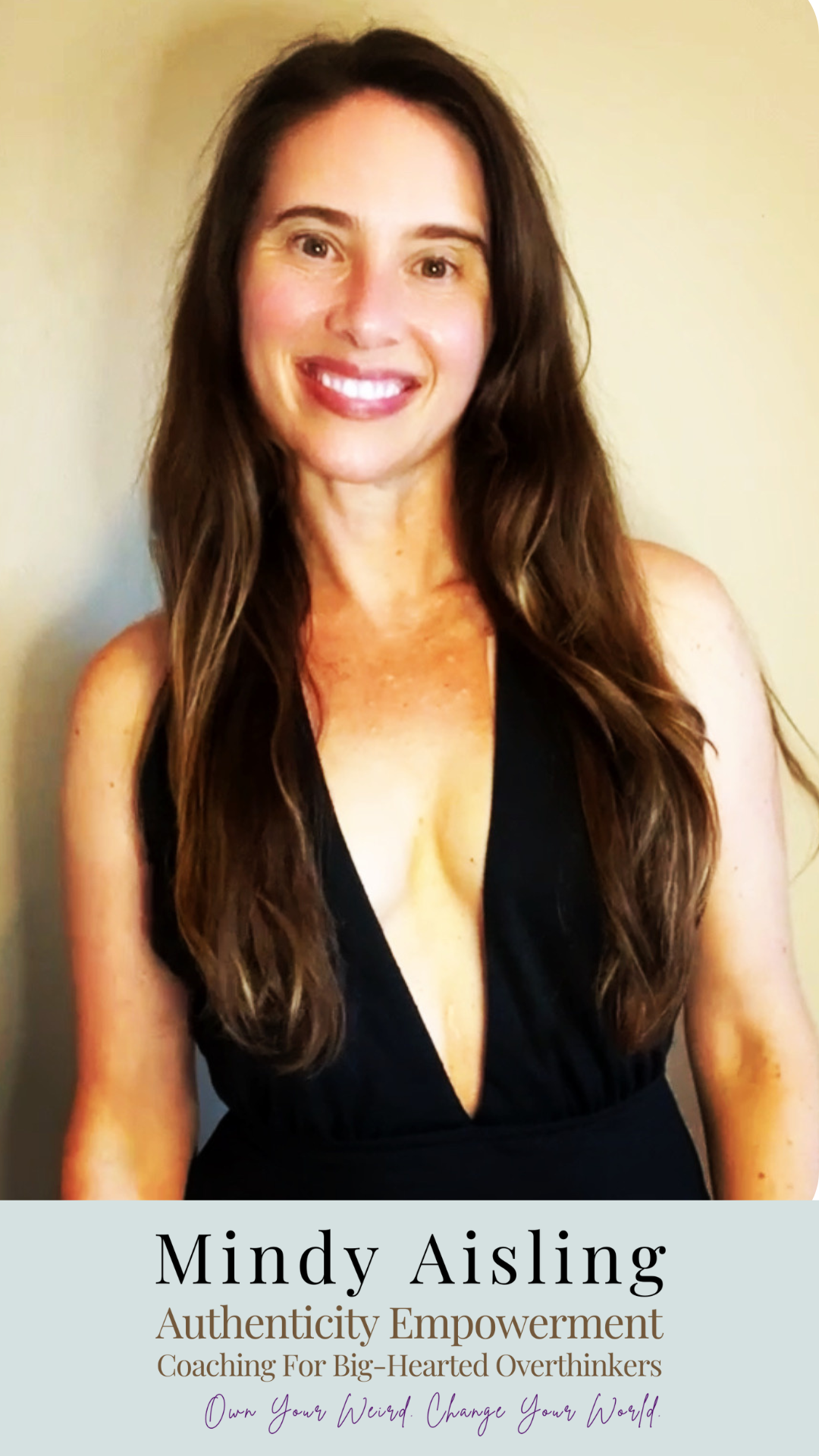|
In today's world, there is an increasing awareness about the way the brain works. The understanding that neurodivergent individuals, those with neurological differences such as autism, ADHD, or dyslexia, aren't "disabled" or "wrong" for the way their brains operate is becoming more mainstream (thank goodness!). This means that the conversation around masking is getting more robust, allowing for increased understanding and connection. Masking refers to the act of suppressing one's true neurodivergent traits and mimicking neurotypical behavior in order to fit into societal norms. Sadly, even though awareness is increasing on this topic, neurodivergent individuals often face pressure from the neurotypical majority to mask their differences, leading to profound challenges and potential harm to their mental health and overall well-being. Neurotypical society tends to operate on a set of unwritten rules and social norms that may not align with the natural behavior of neurodivergent individuals. From an early age, neurodivergent individuals may encounter pressure to conform to these expectations, with society insisting that they "act normal" or "fit in." While the intention behind this demand might be to help neurodivergent individuals navigate social situations more easily, the long-term consequences can be distressing.  Masking requires neurodivergent individuals to constantly suppress their true selves, which can be mentally and emotionally draining. The effort to mimic neurotypical behavior and suppress natural tendencies can lead to a sense of disconnection from one's authentic identity. This ongoing struggle often results in increased anxiety, depression, and overall psychological distress. Furthermore, the perpetual demand to mask can create a pervasive feeling of inadequacy and can undermine an individual's self-esteem. The expectation to mask can also obscure the challenges faced by neurodivergent individuals. When someone successfully masks their differences, their struggles may go unnoticed, leading others to assume that they do not require accommodations or support. As a result, neurodivergent individuals may find it harder to receive the necessary understanding, resources, and accommodations that would otherwise help them thrive. By pressuring neurodivergent individuals to conform to neurotypical standards, society inadvertently suppresses the valuable contributions and unique perspectives that neurodiversity brings. Many of history's greatest minds and innovators were neurodivergent, and their unique ways of thinking and problem-solving have often led to groundbreaking discoveries and advancements. Embracing neurodiversity and allowing individuals to express their authentic selves benefits not only those individuals but society as a whole. Remember, neurodivergent individuals fit in great, have excellent communication, and experience ease in relationships with other ND's! It is not that they "don't fit in" - it is that they struggle to fit in with NT's, or, you could say that NT's struggle to fit in with ND's. That is equally as true. It is important to understand that there is simply different ways that the brain works, and one is not "right" and the other "wrong", they are simply different.
As an Authenticity Coach, my diagnosis helped me deepen into my authenticity with more clarity and permission. It allowed me to get to know and understand part of myself from a new perspective and with more knowledge and information. As I've educated myself on this topic, and personal done the work in my life, it has allowed me to help other individuals on the same path. Below, I'm going to share a few of the ways that my autism and masking has impacted my life. I also want to note that most people (yup, even family) were surprised or in disbelief about my diagnosis. The most interesting thing to me was that some people seemed to have a heavy resistance to accepting it. It almost felt like they didn't want to update their view of me or accept that I might have been struggling with this for my entire life. Some of the neurotypical in my life were almost defensive when I shared with them some of the ways that I had been masking. I heavily relied on my communication, compassion & self-advocacy skills to navigate this part of my journey. Here are 5 ways that my neurodiverse brain works differently then the neurotypical brain, how I've personally struggled with masking, and the tools I've used to deepen my authenticity, build more connected relationships, and increase my peace.
It is essential for neurotypical to recognize and respect the right of neurodivergent individuals to be themselves without the need for constant masking. Building a culture of acceptance involves educating ourselves about neurodiversity, challenging preconceived notions, and creating inclusive environments where individuals of all neurological profiles can thrive. By fostering understanding, empathy, and appreciation for neurodiversity, we can create a society that values the strengths and contributions of all its members.
The demand for neurodivergent individuals to mask their differences in everyday life imposes a heavy burden that can have detrimental effects on their mental health and overall well-being. It is crucial for neurotypical to acknowledge and respect the neurodivergent experience, allowing individuals to embrace their unique traits and contribute to society authentically. By promoting acceptance and celebrating neurodiversity, we can create a more inclusive world where everyone can flourish. It you relate to this article, and would like to discuss coaching in this area, please schedule a free session with me.
0 Comments
Leave a Reply. |
AuthorMindy Amita AislingAuthenticity EmpowermentLife Coaching for Big-Hearted Overthinkers & Entreprenerds🐲Own Your Weird
🌎 Change Your World ⬇️ DIY Courses 👩🏻💻1:1 RemoteCoaching Fully Accredited ICF Certified Mindy Amita Aisling, is a professionally trained and board-certified leadership, authenticity, and entrepreneur coach.
Mindy exceeds all requirements set forth by the International Coaching Federation (ICF) for Master Coach certification. Mindy is also a licensed mediator, communications coach, and conflict resolution practicer. As a mediator, she has worked both in private practice and as a court appointment mediator at her local county courthouse. Through her innovative approach, she assists clients in examining their limiting beliefs, questioning their assumptions about how the world works, and releasing the notion that they are anything less than perfect. As a result, individuals who work with Mindy cultivate the ability to stand firm in their beliefs, live authentically and decisively, and discover an experience of life that is easy and graceful. In 2021, Mindy founded How to Be Human and Entreprenerd. These programs have enabled her to share her wisdom and knowledge with a broader audience in service of her vision of helping others live authentic lives This, in turn, has empowered more individuals to lead their most TRUE and COURAGEOUS lives. When she is not working, Mindy can be found playing outdoors in the beautiful Pacific Northwest, creating art, spending time with friends & family, or with her nose deep in a book. You can sign up for her newsletter here. Archives
June 2024
Categories
All
ICF Certified Life CoachAffordable Online Life Coaching |



 RSS Feed
RSS Feed
